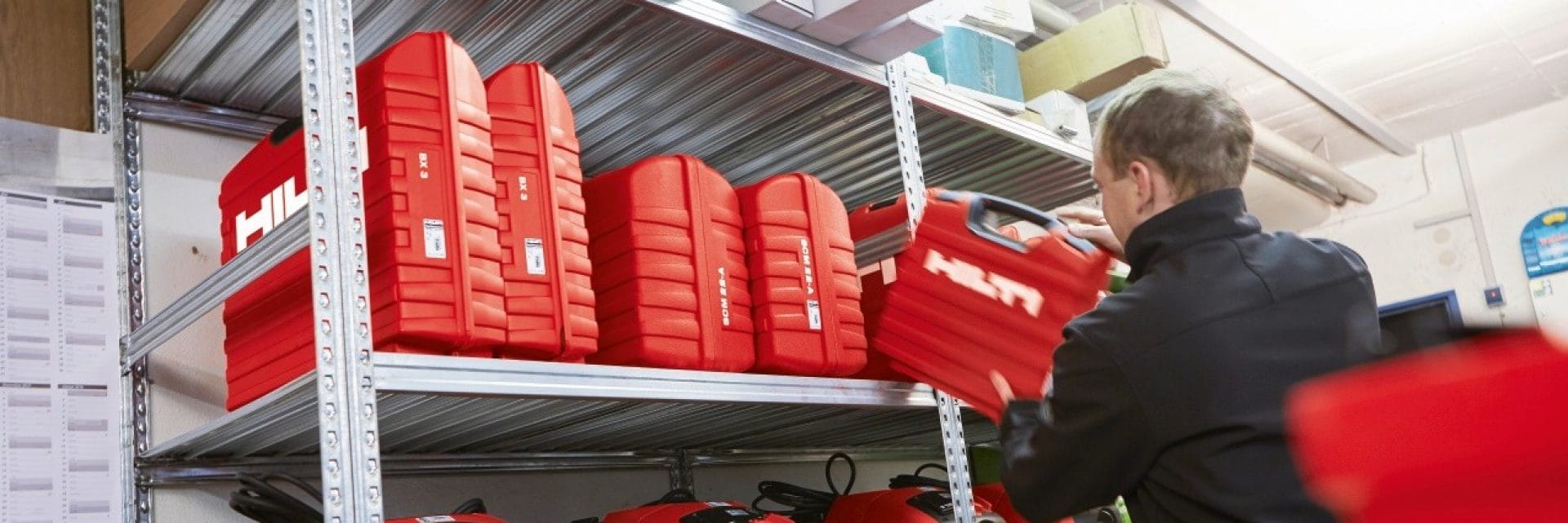- Home
- Company
- Media Relations
- Industry Blog
- Tool insurance
DO YOU NEED TOOL INSURANCE AND WHAT SHOULD IT COVER?
Tool insurance for tradies

As a tradie, your tools are your livelihood. Without them, you can't do what you do best and you certainly can't earn any money - particularly if you're self-employed. Take those tools away for any reason and you have a real problem. That's why it's smart for any tradie to have tool insurance.
Why is tool insurance necessary?
If your tools are lost, stolen or damaged, everything comes to a standstill. Not only is it impossible to complete the job you're being paid for, but everything you have lined up is either going to be postponed or potentially lost if you can't provide the service you have promised your clients. The only options will be to either dig into your own funds and buy replacements, or worse still, borrow the money and pay interest as well.
As any tradie knows, tools don't come cheap. Depending on what line of work you're in, you could have thousands of dollars tied up in equipment. This could include essential cordless power tools, hand tools, cases and benches - or machinery such as bobcats, excavators and generators. Even communication devices such as computers, tablets and mobile phones are vital and will be sorely missed.
Add all that up and you're looking at serious money, which you may not have if you're part of a small business. Even if you do, it will take valuable time and effort to source and replace every item you lose.
This is where tool insurance comes in. For just a few dollars a week, you can cover yourself against the loss, damage or theft of your equipment and have them replaced in a short period of time if need be.

What types of cover are there?
Tool insurance can be included as part of your public liability insurance, in your general business insurance package or as stand-alone insurance. Policies vary widely, so it is important to read the PDS (Product Disclosure Statement) carefully to make sure there are no hidden surprises and that you're being covered for what you need.
Normally, tool insurance will cover you against theft, along with fire/water damage and harm due to a motor vehicle accident. However, many policies will only cover theft from a locked vehicle or premises, so you will either need to make sure your property is always secured or opt for insurance without this requirement (which will likely be more expensive). It also pays to make sure that the accidental damage cover in the policy is for a broad range of possible circumstances - as some providers restrict cover to vehicle collisions and rollover only.
A typical policy
The following is a fairly typical example of what a tool insurance policy will cover:
- Tools and stock covers against fire, flood, lightning, explosion, malicious damage or vandalism.
- Theft by forcible entry to a locked vehicle or premises.
- Theft of equipment that is securely attached to a vehicle with locks or padlocks.
- Damage caused by collision or rollover of a vehicle.
There will normally be an excess to pay of a few hundred dollars (the amount you must contribute to any claim) and a benefit limit on specified items. Make sure this limit will cover replacement of the tools you own or consider raising the limit (by paying more) to cover more expensive items.
Things to ask when considering a policy
Every tradie's insurance needs will be different and you should always consult a professional when deciding on your policy, but the following is a general checklist of things to consider when looking at a policy:
- Are your tools covered if they are stolen from a work site? If you work on building sites a lot, you may want to have this extra cover included.
- How much excess will you have to pay? Sometimes a policy is cheap because a large excess applies to every claim.
- Are the benefit limits enough to cover replacement of your tools? This should be new-for-old replacement, rather than market value.
- Does the cover include stock? This refers to stock that you carry or store such as switches, cabling and other supplies that can be expensive to replace.
- How long does it take to process a claim? This should not be more than a couple of days, because you won't be earning any money during that time.
Of course, to reduce the likelihood of your tools being stolen - one of the biggest reasons for claims - you can take precautions yourself, such as having your equipment engraved and keeping it locked away when not in use. Even so, accidents do happen and thieves are often opportunistic, so the best form of protection is some level of tool insurance. It could end up saving you a lot of money down the track.
For a simpler option, take a look at Hilti's Fleet Management Service. For a small monthly fee, we cover all tool, service and repair costs, as well as providing replacements in the event that your tools are stolen.
